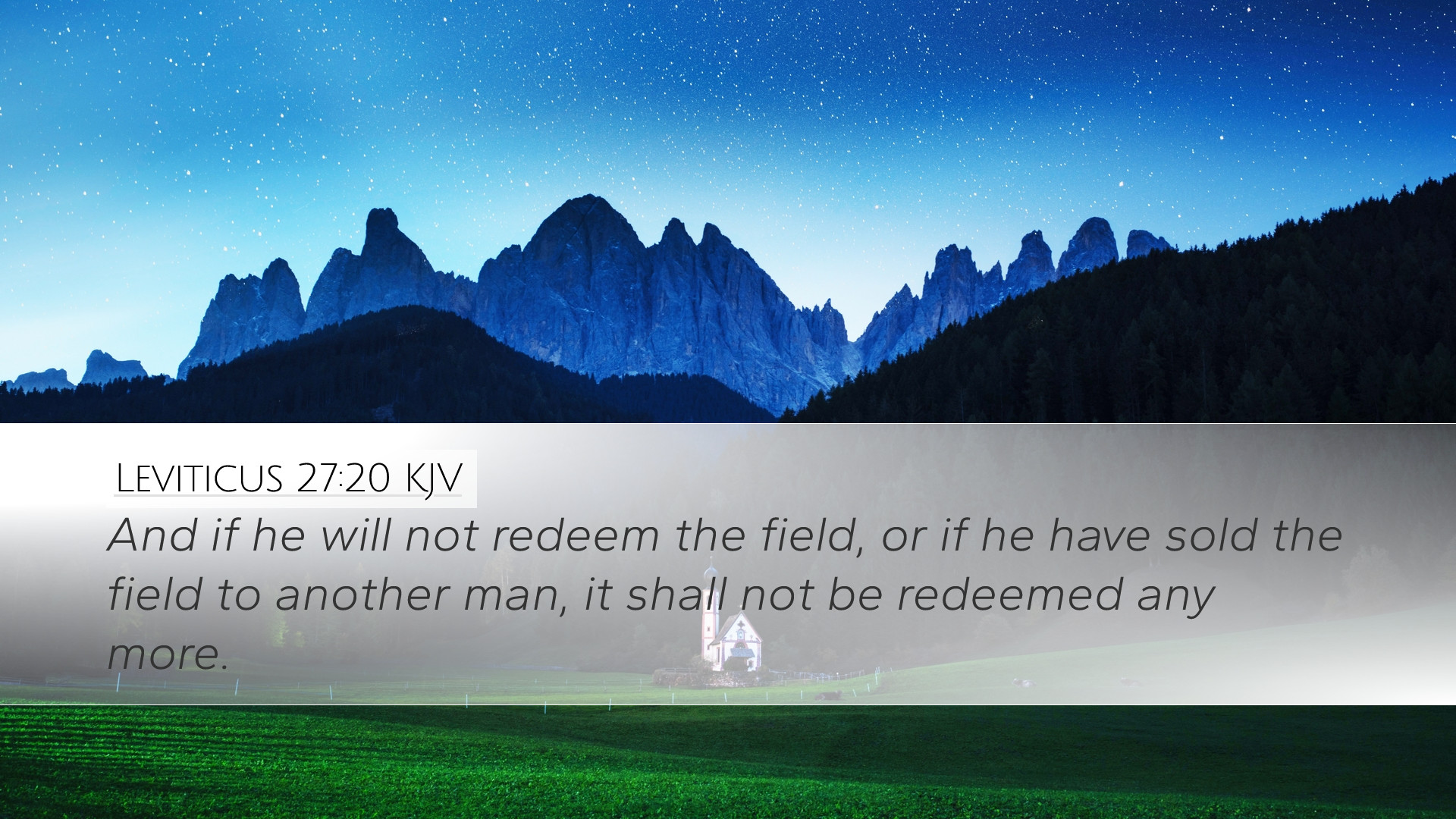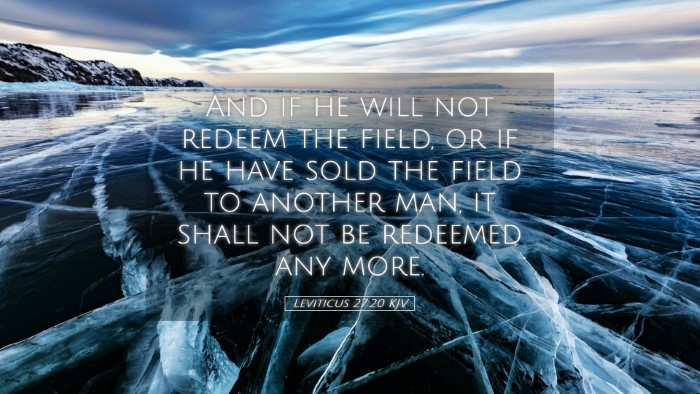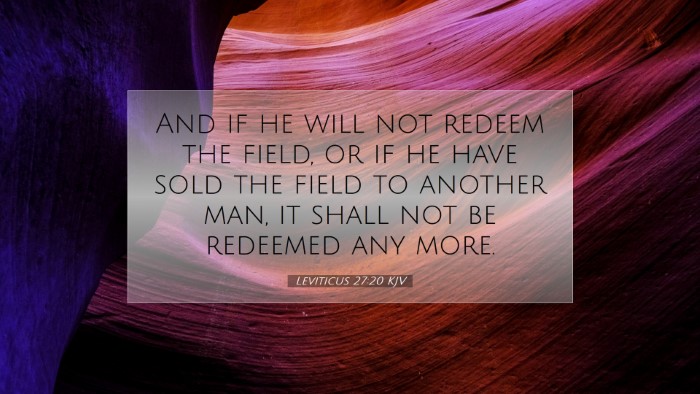Commentary on Leviticus 27:20
Verse Text: "But if he will not redeem the field, or if he have sold the field to another man, it shall not be redeemed any more." (Leviticus 27:20, KJV)
Introduction
The verse under consideration forms part of the laws regarding vows and devoted things within the broader context of Leviticus, which serves to outline the holiness code dictated by God. This specific verse highlights the principles of ownership, dedication, and the irrevocability of certain transactions, offering rich theological and practical insights for pastors, students, theologians, and scholars.
Contextual Background
Leviticus is largely prescriptive, detailing the laws and regulations given to the Israelites. Chapter 27 discusses the values assigned to people and objects that are dedicated to the Lord, including fields and other properties. The chapter culminates in emphasizing the seriousness of vows made to God and the importance of fulfilling them.
Matthew Henry's Insights
Matthew Henry's commentary emphasizes the themes of commitment and the serious nature of dedicating property to God. He notes that:
- God had established a system where the sanctity of vows should not be taken lightly.
- The inability to redeem a field once it has been sold signifies the permanence of commitment, illustrating how divine principles govern human affairs.
- This verse invites the faithful to reflect on the consequences of their promises and their relationship with God.
Albert Barnes' Observations
Albert Barnes provides a detailed exegesis of the passage, focusing on the implications of the "redemption" of a field:
- He points out that if a person neglects to redeem the field, it results in a loss not only of property but also spiritual standing.
- In Barnes' view, the selling of the field to another illustrates a transfer of stewardship and an acknowledgment of the limitations imposed by human choices.
- Moreover, it serves as a reminder of divine ownership, as all things belong to God and humans are merely stewards of His creation.
Adam Clarke's Analysis
Adam Clarke approaches the passage with an emphasis on cultural and historical context:
- Clarke remarks on the agricultural setting of ancient Israel, where land was a vital asset. The act of selling a field was significant, not only economically but also symbolically.
- He interprets the verse as a warning against making light of one’s dedication to God. The irrevocability of selling the land reflects the seriousness of promises made under divine auspices.
- Clarke notes that such laws governed social justice and economic equity within Israelite society, ensuring that every individual respected their commitments.
Theological Implications
This verse presents several theological implications worthy of exploration:
- Divine Ownership: The ownership of property and the ability to dedicate it to God underscores God’s ultimate sovereignty over all creation.
- The Nature of Vows: Vows made to God should be treated with utmost seriousness, reflecting one’s fidelity and integrity in their relationship with God.
- Stewardship: Human beings are called to be stewards of what God has entrusted to them. This stewardship comes with responsibilities that should reflect God’s will and character.
Practical Applications
For pastors and leaders, this passage offers a multitude of practical applications:
- Encouragement for Accountability: Encourage congregations to hold themselves accountable for their commitments to God.
- Teaching on Stewardship: Foster a deeper understanding of stewardship in all areas of life, including time, finances, and talents dedicated to God.
- Reflection on Worship: Enable the faithful to reflect on how they approach God in terms of their commitments and the seriousness of worship.
Conclusion
Leviticus 27:20 serves as a profound reminder of the structured order of faith and practice within the community of believers. The insights gleaned from Matthew Henry, Albert Barnes, and Adam Clarke offer rich reflections that resonate with the core values of commitment, accountability, and stewardship. As we consider the implications of this verse, may we strive to uphold our vows to the Lord with sincerity, ensuring our lives reflect His holiness.


